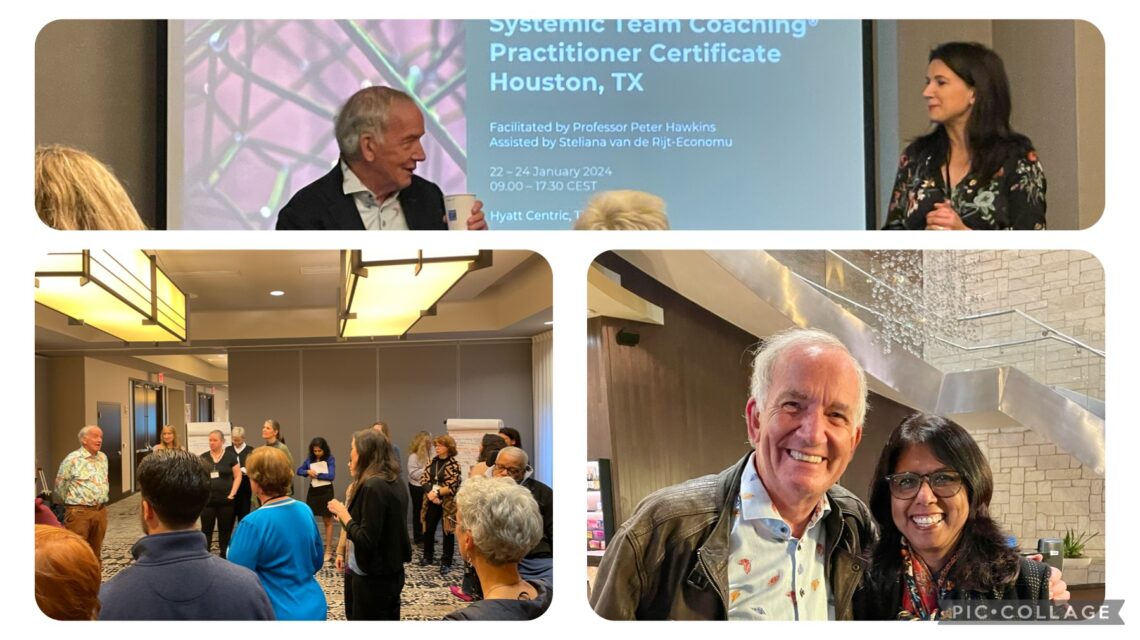-
Applying Engineering Principles To Solve People Issues
Ron, an engineering manager, faced a persistent challenge with one of his direct reports, Jackson. Jackson’s behavior left Ron questioning his motivation and even his competency. Despite Jackson’s belief that he was doing well, Ron and others saw things differently. Struggling to address this without creating conflict, Ron resorted to giving indirect advice about being more patient and a team player, but nothing seemed to work. Sound familiar? Many engineering managers encounter similar struggles. The core of the issue often lies in: “How do I provide feedback that the other person will accept and act on?” While common feedback strategies like being timely and actionable are important, there’s another highly…
-
Beyond Busy: Transforming Work Habits with Neuroscience Insights
In a recent coaching session, Tatiyana, a senior director at a leading global engineering company, opened up about a pressing issue: “I’m grappling with two primary challenges. Firstly, it’s incredibly hard to progress in my big project when my day is full of meetings. Secondly, even after delivering a high-stakes project, I struggle to focus on the next task as my mind continues to dwell on the previous one.” Worried about its impact on her productivity, she sought guidance. This challenge is common for many professionals today, grappling with a relentless schedule of meetings and complex tasks. But here’s the kicker—it’s not a personal deficiency; instead, it’s intricately linked to…
-
Are You an Emerging Leader Seeking Next Level of Growth?
Are you an ambitious mid-career professional in tech, STEM, or any high-paced culture? Do you long to make a meaningful, fulfilling impact? Many, like you, sometimes wonder what else they must do to propel themselves to the next level. Given that everyone has the same 24 hours in a day, we can’t scale ourselves just by working more hours. Our brain can’t stay productive like that anyway. So what can we do about it? Like the famous book title by Marshall Goldsmith, “What got you here won’t take you there,” there is something else that will prepare us for the next level of growth. After coaching so many senior leaders,…
-
Career satisfaction, Coaching, Happiness, Leadership, Self-leadership, Stress Management, Work-life integration, WorkLife balance
Foundation for Growth: Four Simple Practices Make My Clients Successful
People come to coaching for many reasons. Some want to lead a significant change management initiative, while others want to improve team productivity or develop leadership skills for the next promotion. Whatever the reason, one needs to create the foundation for growth to achieve these outward goals. These building blocks – mindfulness, intentional focus, reflection, and self-care – are essential for coaching success. 1. Mindfulness Mindfulness serves as the cornerstone of this foundation. In a world where we often operate on autopilot or react to external demands, we must pause and ground ourselves. By incorporating bite-sized mindfulness practices, my clients gain the capacity to observe their thoughts and emotions rather…
-
What Causes Conflicts In Teams
No one wakes up thinking, “I will ruin the day; I will create trouble today.” But even when everyone on the team is decent, stress, conflicts, and drama happen. I have identified a few underlying causes behind them. For this article, I am leaving out the toxic cultures where the main actors are ego, selfish interest, and lack of trust. On a team I led, there was a very energetic, proactive, independent-minded person who was very good at generating ideas and following through with them without help. Let’s call him Ron. I felt lucky to have Ron on the team. But the problem was that some other folks were annoyed;…
-
Secrets of High-Value Creating Teams: Learnings from Legendary Professor Hawkins
In our global, highly complex world, the heroic leadership figure has increasingly become a relic. Manfred kets de vries, 2011a: 56 Over the past 6-7 years, I’ve recognized a need beyond executive coaching for organizations heavily reliant on teamwork. Consequently, I’ve invested in team coaching training, an emerging field within the industry. So, when I learned that Professor Peter Hawkins was offering his class in the US, I promptly applied. Professor Hawkins is a world-renowned leadership expert and a thought leader in executive and team coaching, often advising leading companies and governments in pivotal change initiatives. I feel fortunate to be able to learn from him this past week. Below,…
-
Three Strategies That Reduced Stress for a Busy Executive
Sheela, a senior executive at a renowned Fortune 500 company, sought my coaching services to improve her quality of life. She said her demanding job was taking a toll on her. Early morning meetings disrupted her morning self-care routine, and recent layoffs added even more stress to her already crazy schedule. As a result, Sheela felt exhausted, overwhelmed, and helpless. Sheela’s story is all too common among high-achieving professionals. Running after work deliverables alone was no longer feeding her soul; she valued her relationships with her family, friends, and team. Balancing these different areas of her life became a challenge, but with coaching, Sheela could find a way to improve…
-
How Not To Think About An Elephant – A Neuroscience Way To Attain Goals
What if I say, “Do not think about an elephant?” – I bet all you will think of is an elephant or several elephants in your mind. Well, it turns out that’s just how our brains work. When we tell ourselves not to do something, our brains don’t know what to do with that information. So, instead of ignoring what we try to avoid, our minds focus more on it. There’s a name for this phenomenon: Ironic mental control. Our brains have two systems for controlling our thoughts and behaviors. The first system directs our attention and actions toward our goals, while the second system monitors us for errors. When…
-
Career satisfaction, Coaching, Executive Presence, Happiness, productivity, Stress Management, Success Strategy, Time Management, WorkLife balance
Are You Sabotaged By Your Inner Hyper-Achiever?
A tech leader, let’s call him Jason, said, “I can’t relax; I always have to do something useful. Nobody makes me do so; it’s me. This is how I am”. Jason is not alone. Many of us have such hyper achievers in us, pushing us to do more. This trait may have helped us be where we are, yet its overuse can cause more harm than good. Growing up, we all developed different traits that kept us safe, got us what we needed, and helped us succeed. Other than the hyper-achiever, there are several additional traits: pleaser, perfectionist, and victim, to name a few. My top two are hyper-achiever and…
-
Sustainable Success: The Multifaceted Journey Beyond Social Media Posts
It is the season of job promotions. I’ve been getting several such news through LinkedIn posts from my clients. However, these celebratory posts only scratch the surface of their entire journey. When we see things only from the outside through a social media post, we sometimes fail to grasp the totality of the story. We might even feel a little green with envy or bummed out because we’re comparing our everyday grind to someone else’s highlight reel. We just hit “Like” or write “Congratulations” and move on with our day. As their coach, when I see those announcements, I’m transported back to their journey’s inception, reflecting on the intentional efforts,…









